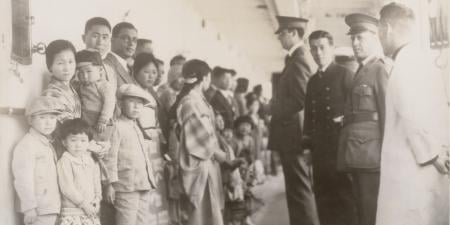Case
Dr. Mehta is a second-year resident in internal medicine at St. Elizabeth, an urban teaching hospital. He attended medical school in India and completed a residency there in radiology before coming to the United States 5 years ago. After being certified by the Educational Commission for Foreign Medical Graduates (ECFMG) and passing the U.S. Medical Licensing Exam steps 1 and 2, Dr. Mehta applied for and gained the residency he now holds.
Dr. Mehta is doing well in the program. He is about 5 years older than most of his colleagues, due to the many years of training, and most patients seem comfortable with him, eager to talk and listen to him.
As Dr. Mehta approaches Mr. Hannigan’s room, hand already raised to knock on the half-opened door, he hears Mr. Hannigan’s grown daughter, who has been by her father’s side during his 2-day stay for diagnostic testing.
“Don’t you have any American doctors? I can’t understand all these foreign doctors,” she says.
Dr. Mehta steps back for a minute and walks down the hall. Having visited with Mr. Hannigan and his daughter yesterday, he assumes he is one of the foreign doctors she is speaking of. Today, Dr. Mehta has serious and, therefore, unwelcome news to communicate to Mr. Hannigan and his daughter—Mr. Hannigan has a malignant tumor in his colon. Dr. Mehta wonders how to establish the proper conditions for the exchange of difficult information, given what he has just heard.
Commentary
When we took the Hippocratic oath we swore to treat patients equally despite their beliefs. That means that we should be aware that people have biases and prejudices, just as we ourselves do, and should tolerate them. It does not mean, however, that we must continue to treat openly hostile or rude patients or family members.
The comment made by Mr. Hannigan’s daughter was one that is, unfortunately, common in society today. Perhaps the opinion is not shared by her father. We all make remarks that are not politically correct, especially in times of stress. Mr. Hannigan’s daughter is probably frightened and finds herself in a situation that is alien to her, has its own culture, even. She would like to learn about her father’s illness from someone who looks and sounds like her. When we are frightened, we all would prefer that. She did not expect to be overheard and would probably be embarrassed to learn that she had offended Dr. Mehta.
In this situation I would advise Dr. Mehta to do the following. First, he should ignore the fact that he heard the daughter’s comment. He should greet Mr. Hannigan and his daughter warmly and tell the patient that he has some important news about his test results to convey.
At this stage, if Mr. Hannigan’s daughter says that she cannot understand Dr. Mehta, he should offer to get a nurse or reliable member of the staff (if possible, a patient relations advocate) to join them. If there are no objections, however, from Mr. Hannigan or his daughter, Dr. Mehta should continue with his discussion, taking time, showing compassion, and stopping frequently to ask whether Mr. Hannigan has any questions.
I believe this approach would ease the situation and lead to a successful exchange of information. As Dr. Mehta explains the findings and answers questions from the patient and his daughter, they will learn that he is knowledgeable and well trained and has his patient’s best interest at heart.
After moving from Detroit to rural Decatur, Alabama, in the 1990s I frequently encountered situations like that of Dr. Mehta. As I matured, both as an individual and a doctor, I learned to take the approach described above with patients. It is rewarding and gratifying when I watch a patient’s skepticism and even suspicion about “foreign doctors” dissolve and I earn their confidence and trust.
If Dr. Mehta does not think he can take the approach described above, an alternate and perfectly professional action would be to talk with the division chief about the situation and suggest that another resident carry on with this patient’s care.



